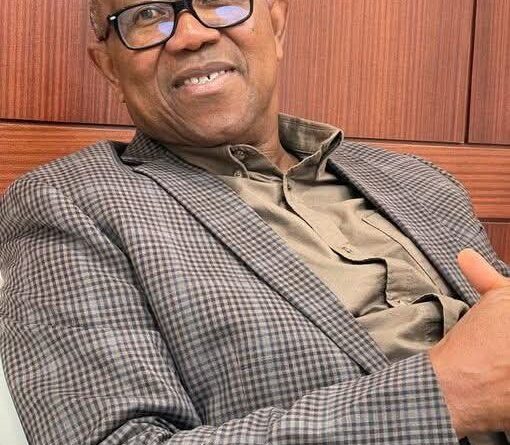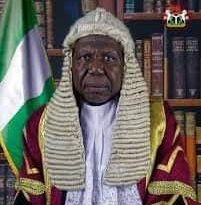Political elite are desperate to discredit Peter Obi as he is symbol of hope, transparency & fiscal prudence—-Frank Akpokwu, Management Consultant
AS Nigeria continues to navigate the challenges of governance, identity, and accountability, one man has emerged as both a symbol of hope and the target of an unrelenting smear campaign: Peter Gregory Obi, former Governor of Anambra State and 2023 presidential candidate of the Labour Party.
Obi’s name is now synonymous with transparency, fiscal prudence, and a new brand of politics — one anchored not on ethnicity or patronage, but in credibility, competence, and connection to the everyday Nigerian. This very appeal has drawn the ire of many within the political elite who see in Obi not just an opponent, but a disruptor.
The Fear of a Different Kind of Politician
Obi governed Anambra State with relative efficiency, left behind savings instead of debts, and continues to articulate issues with uncommon clarity and data-backed reasoning. He maintains a modest lifestyle and campaigns without the deep war chests often associated with national political contests. In a system built on excess, impunity, and opaqueness, this is a radical act.
What threatens the old guard is not that Obi is perfect — but that he is different.
A Closer Look at the Critics
It is telling that many of Obi’s loudest critics carry heavy political baggage:
President Bola Ahmed Tinubu: Long dogged by allegations of drug-linked forfeiture in the United States, unclear personal records, and shadowy financial networks.
Atiku Abubakar: Former Vice President accused of corruption by none other than President Obasanjo. His involvement in foreign bribery scandals remains a stain on his reputation.
Reno Omokri: A former presidential aide turned social media commentator, better known today for polarizing rhetoric and personal attacks than for any consistent public service legacy.
Charles Soludo: Current Anambra State governor whose criticism of Obi often appears more rooted in political rivalry and elite alignment than in genuine policy disagreement.
Festus Keyamo: Once a fearless human rights advocate, now one of the most visible defenders of the very establishment he once opposed.
Senate President Godswill Akpabio: Known for his sharp attacks on Obi and opposition voices, Akpabio himself has been repeatedly linked to corruption allegations dating back to his tenure as governor of Akwa Ibom State and his time in the Niger Delta ministry. His record raises serious concerns about credibility when casting aspersions.
Not Without Flaws, But Who Can Cast the First Stone?
Peter Obi is not without critics or shortcomings. No public figure should be above scrutiny. However, there is a stark contrast between those who govern with accountability and those who exploit the system. Obi’s relatively clean record does not make him a saint — it makes him an anomaly in a system rigged against reformers.
The ferocity of the attacks against him is not about ideology or policy. It is about fear — fear of exposure, fear of change, and fear of a public awakening that threatens to upend the elite consensus.
A Mirror to a Failed System
Obi, whether he eventually becomes president or not, has already achieved something rare: he has become a mirror. His presence reflects the failures of those who came before him, and the attacks against him reveal just how threatened they feel by a new wave of citizen-driven politics.
In the years ahead, the Nigerian electorate will be called upon once again to choose between familiar patterns and a chance at real change. The noise will grow louder. The disinformation campaigns will multiply.
But through it all, one question must guide the public’s response:
Who among them has truly earned the moral right to discredit Peter Obi?
,




